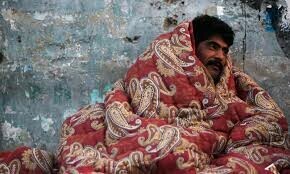The situation in Tharparkar is dire because of the drought the desert district in Sindh has witnessed for the second consecutive year.
The harsh climatic conditions have also affected the district of Umerkot. Unfortunately, the handling of the grim situation by the PPP government in Sindh has left much to be desired.
On Friday, provincial minister Manzoor Wasan denied issuing an inquiry report on the Thar drought a day after details of the document found their way to the media.
Mr Wasan described news of the report as “a heinous conspiracy against PPP and the Sindh government”.
The report had angered Bilawal Bhutto Zardari, who issued show cause notices to Mr Wasan and the Sindh chief minister while a Bilawal House spokesman criticised the document as “immature”.
Read: Minister’s report on deaths in Thar angers Bilawal
Both the apparent leak and the angry denial reflect the chaos and lack of cohesion within the Sindh government.
It almost appears as if internal rifts and power games within the PPP are affecting governance when the party should be focusing on making an honest effort to investigate the disaster in Thar and to suggest remedies.
It is understandable why the PPP leadership would feel uneasy about any criticism that it had failed to satisfactorily tackle the issues in the region, as it has always maintained that things were under control.
But it needs to confront the circumstances in a straightforward manner and worry less about the damage to the party’s image that an honest appraisal of its performance in Thar might incur.
Considering the controversy that shrouds the now denied report, a fresh, unbiased investigation into the situation prevailing in the desert area is required, preferably overseen by institutions and individuals that are not influenced by and have no interest in political power games.
As independent observers have noted, the situation in Thar is far from normal, with hundreds of drought-related deaths reported since last year, as well as rampant malnutrition, especially amongst children, and livestock deaths. Hence the Sindh government cannot brush aside criticism.
A third party — and not a serving minister or government official — must look into the issue, point out weaknesses in the administration’s service delivery mechanisms and suggest solutions. Perhaps reputable NGOs familiar with the area can be given the task.
What is certain is that the suffering of Thar’s people must not be lost sight of due to political squabbling and infighting. An effective long-term response is needed to address Thar’s problems.
Published in Dawn, November 9th, 2014














































